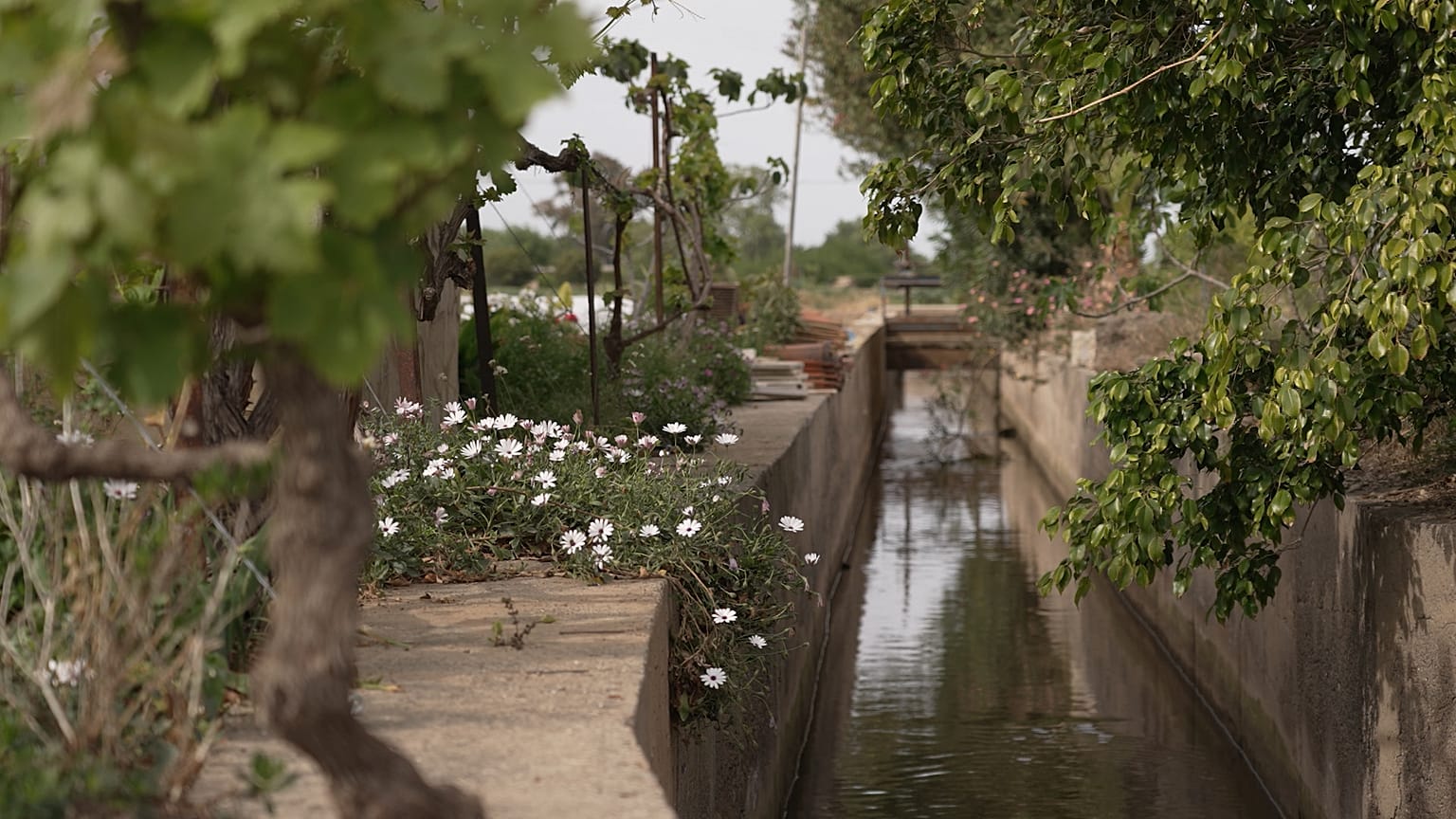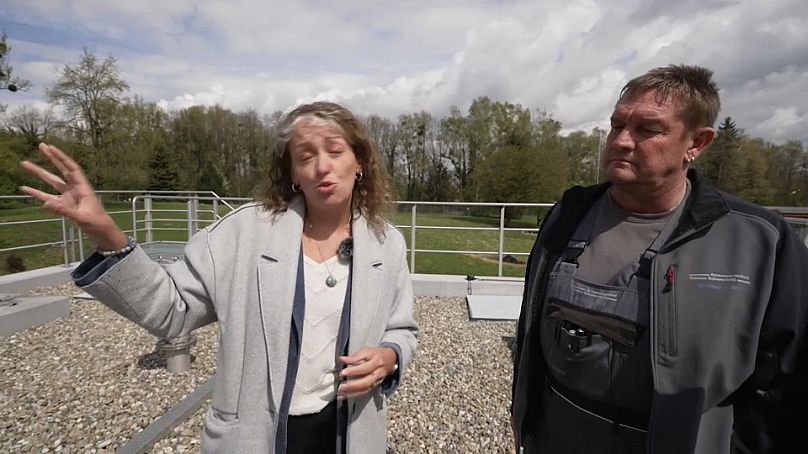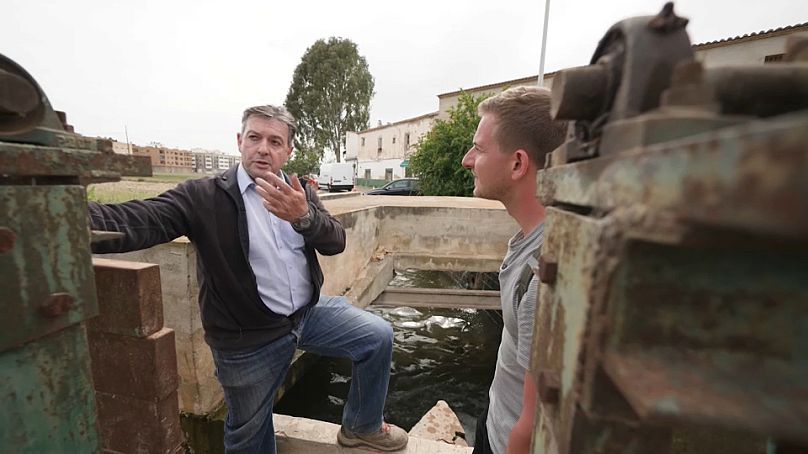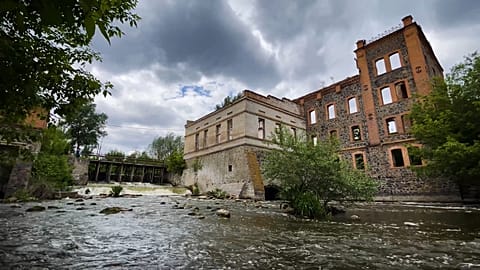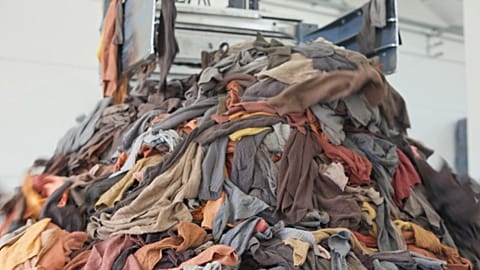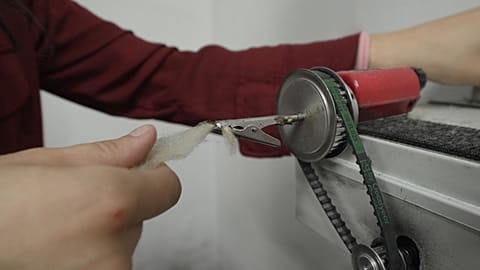Life on earth depends on freshwater: a resource that's under pressure. Soaring demand and climate change make fresh water ever more precious, even in Europe, while floods and droughts are getting more extreme - changing the lives of millions.
Europe is lucky: overall, water quality is improving and there's a good level of access to drinking water. But with the challenges brought on by climate change and soaring demand, new approaches are being adopted to improve cleanliness, distribution and recycling.
 ADVERTISEMENT
ADVERTISEMENT
 ADVERTISEMENT
ADVERTISEMENT
Lake Constance: Cutting pollution at source
At Lake Constance in Germany, they've achieved development without cutting water quality:
The rule is simple: the less polluted the water, the less it has to be cleaned. It's an example to follow, at a time when the new European directive on drinking water aims to guarantee access to quality water for all.
Friedrichshafen is the city where the Zeppelin was invented. It's also on the shores of Lake Constance, the largest drinking water reservoir in Europe. Millions drink the water - and it's the pride of the city.
This region's also at the forefront of the new battle against micro-pollutants.
"We're using more and more chemicals at home, with household products," French scientist Marie Launay, Head of the Micro-Pollutants Competence Center at Baden-Württemberg explains. "We're using more medicines, more pesticides too. And these substances, when they're persistent, they also persist in the environment and so it's important to eliminate them to preserve water quality."
Marie Launay heads a unit dedicated to tackling these micro-pollutants which are harmful to fish, ecosystems and humans. Part of the solution lies in the plants that treat used water before returning it to nature.
"Of course, we have to take care of the drinking water reservoir as much as possible," says Heiko Kiebler, Eriskirch Wastewater Treatment Plant Manager. "Because many people live off it - and that's why we have to try to treat the wastewater as well as we can."
For the state of Baden-Württemberg, it's a priority. An additional ozone treatment is now used in several stations.
"With ozone, we have a chemical process, we are going to break down these pollutants, and therefore these smaller molecules will be eliminated by the treatment plant," says Launay.
This technology is likely to be adopted elsewhere as new European regulations extend the list of banned pollutants.
"There are plans to eliminate micro-pollutants for large stations and sensitive regions at EU level," Launay explains. "It is planned that the pharmaceutical and cosmetic industries will pay for the financing of these facilities for environmental protection."
This winter there was much less snow in the Alps, so less water flowing into the lake. But that's nothing compared to the situation in southern Europe.
Desalination in Spain
In Spain, the level of water reserves is worrying everyone. The community in Valencia is one of those European regions regularly hit by drought. And innovative solutions are being introduced.
Making freshwater from seawater is one of them. Desalination plants account for about 9% of freshwater consumed in Spain.
The technology is expensive and energy-intensive but necessary.
"This desalination plant allows water from the Jucar River to return to other populations that are running short," says Jose Luis Zaplana, Cadagua, Plant Manager. "You might think desalinating seawater is expensive, but it's better than not having water."
"It helps the economy a lot: tourism, agriculture, in this case, industry," says Mariola Dura, Acuamed, Chief Operating Officer. "It means we don't have to worry too much about whether it's raining or not."
Wastewater reuse
Spain's also a European champion in wastewater reuse, especially in agriculture.
In the Horta, a large agricultural zone near Valencia city centre, fresh produce is grown for inhabitants. Valencia recycles more than half of its wastewater and to understand how, we're back in a treatment plant.
Here, water gets ultraviolet treatment before being offered to farmers.
"It's a refining treatment after the secondary treatment," says Daniel Gomez, Carraixet Wastewater Treatment Plant Manager. "The farmers were the first to ask for it. They've the guarantee it'll always be available, with water of very stable quality."
There's huge untapped potential, with new European rules coming in this summer to regulate and encourage the practice.
"There are places in the world where water coming out of wastewater treatment plants can be drunk," says Juan Ángel Conca, General Manager of Entidad Pública De Saneamiento De Aguas Residuales De La Comunidad Valenciana. "And all this, which looks like a factory, is a resource. It is a source of clean water for agriculture, clean water for the environment, but also of slurry, used to make fertilizer for agriculture. And finally, it's a source of energy, because we produce biogas, methane, that's used in these plants."
The recycled water is mixed with water from a river before joining traditional irrigation channels.
"Before, there was no water from the treatment plant and we managed to get by," says farmer Enrique Aguilar. "But it'd be a shame if this treated water, couldn't be used. Because we're in a region where there isn't that much water, remember we're at the same level as the sea. So if we didn't irrigate the land like that, salt would come in. And what's now a fertile vegetable garden would turn into a desert in a few years.
This water is used to water fruits and vegetables and a lot of 'chufa', a Valencian tiger nut that's the main ingredient of the local drink horchata.
"At first, farmers were reluctant," says Aguilar. "Would the water be good or not? But we've been using it for over 25 years and the results are really positive. Water is water. It has all the necessary qualities. We've been irrigating with recycled water for many years and no one's ever noticed anything!"
And I can confirm the horchata is excellent. See you soon!















